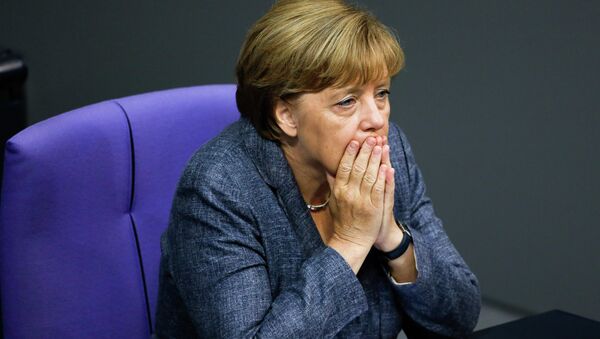According to Merkel, the EU knows full well that the sanctions have already affected a whole array of Western companies.
"So we certainly want a political framework where the conditions would allow us to abandon the sanctions," she was quoted by Deutsche Welle as saying.
She expressed regret about what she described as "substantial violations of international law and the unstable situation," which Merkel said prevented the issue from being resolved.
The West has repeatedly accused Russia of backing supporters of the Donbass region’s independence in eastern Ukraine, allegations that Moscow vehemently denies.
At the same time, Merkel made it clear that Germany is interested in returning to constructive ties with Moscow.
"We want partnership relations with Russia, [because] we have so many international problems," she pointed out.
According to her, Moscow, in particular, can play an important role in defusing tensions in Syria.
The US, Canada, Australia, New Zealand, Japan and most of Europe have been slapping sanctions on Russia since March 2014 due to their disapproval of the Kremlin’s response to the crisis in Ukraine.
On June 22, 2015, the Foreign Ministers of the EU countries decided to extend the anti-Russian sanctions until January 31, 2016.




